Stockholm-based Gandhi spent 106 days at sea, as he rowed from the island of La Gomera, off Spain, to JabberWok Beach on the northern coast of Antigua.
More people have climbed Mount Everest than have rowed the Atlantic (or any of the other oceans, for that matter.) And to row over 6,000 km solo is a feat that is nearly superhuman. Mumbai boy Bhavik Gandhi is among the few people to have done that. Stockholm-based Gandhi is a partner at Elsa Ventures, which specialises in AI-driven health-tech and bio-tech startups. He has also mentored entrepreneurs at the Stockholm School of Economics and Entrepreneurship, and the Gates Foundation. In 2007, Gandhi, now 40, spent 106 days at sea, as he rowed from the island of La Gomera, off Spain, to JabberWok Beach on the northern coast of Antigua. “Rowing an ocean alone is possibly one of the toughest physical challenges. It’s very unlike rowing on a lake. Very rarely are both oars in the water. You are constantly being knocked about by the waves; it’s more akin to being inside a washing machine,” says Gandhi.
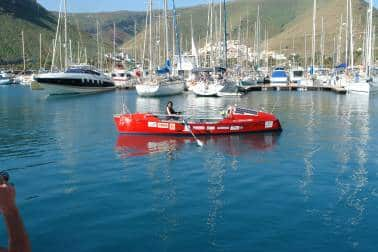 There were also moments such as these for Gandhi: “As I got closer to the equator, it got too hot during the day and I started rowing mostly at night. The night sky was dazzling with Orion's Belt, the Pole star, and the Milky Way and other constellations visible to the naked eye. The ocean was full of plankton which, when disturbed, give off a glowing green light. This is called bioluminescence. Often, I also had dolphins for company, and when they surfed down the waves chasing fish they would disturb the plankton and look like glowing fluorescent green torpedoes shooting through the dark water.”
There were also moments such as these for Gandhi: “As I got closer to the equator, it got too hot during the day and I started rowing mostly at night. The night sky was dazzling with Orion's Belt, the Pole star, and the Milky Way and other constellations visible to the naked eye. The ocean was full of plankton which, when disturbed, give off a glowing green light. This is called bioluminescence. Often, I also had dolphins for company, and when they surfed down the waves chasing fish they would disturb the plankton and look like glowing fluorescent green torpedoes shooting through the dark water.”
As with every massive challenge in life, rowing the Atlantic solo was ultimately about mind triumphing over matter.
As we enter into what is seen as a decisive phase in the war against the coronavirus, Gandhi talks to moneycontrol.com about, among other things, battling uncertainty and what entrepreneurs can learn from isolation and how they can use it to their advantage.
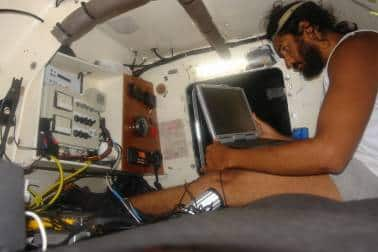 * In its crudest form, my expedition was a type of solitary confinement. There were, of course, other things to worry about — like whether my boat would leak, the storm brewing on the horizon and so on — but being alone, seemingly without any sort of control over one’s life, dominated everything. But the thing with isolation is that you get used to it. The first three days might be tough, but if you can do three days, you can
* In its crudest form, my expedition was a type of solitary confinement. There were, of course, other things to worry about — like whether my boat would leak, the storm brewing on the horizon and so on — but being alone, seemingly without any sort of control over one’s life, dominated everything. But the thing with isolation is that you get used to it. The first three days might be tough, but if you can do three days, you can 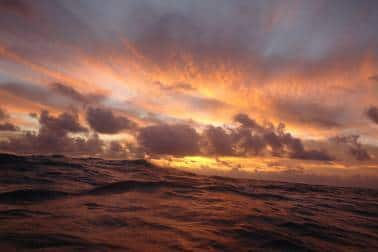 surely do five. What can get you through isolation or any trying period is control over your thoughts. Once you do that, you actually start to enjoy it. The last person I saw when I left Spain was a fisherman and my first human interaction after over hundred days was with the Coast Guard off Antigua. To tell you the truth, that moment was accompanied by a kind of bittersweet feeling, because once you learn to enjoy being with yourself, isolation can bring you moments of extreme clarity.
surely do five. What can get you through isolation or any trying period is control over your thoughts. Once you do that, you actually start to enjoy it. The last person I saw when I left Spain was a fisherman and my first human interaction after over hundred days was with the Coast Guard off Antigua. To tell you the truth, that moment was accompanied by a kind of bittersweet feeling, because once you learn to enjoy being with yourself, isolation can bring you moments of extreme clarity.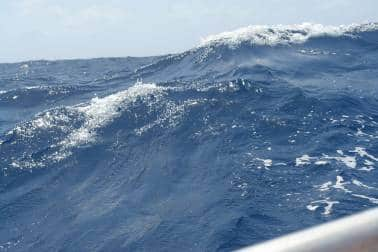
* To millions of entrepreneurs out there, the past month and next couple will be a period of great uncertainty. But when you are an entrepreneur, you are dealing with unpredictability all the time. In times such as these, there are only two things you can control: Your time and your health. I see this as a great opportunity to reflect on where you are and where you want to go — without any of the distractions that would otherwise accompany daily life.
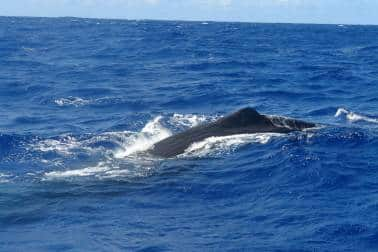
- I’d look at this as an opportunity to declutter your mind. You’ve probably been doing a lot of cleaning around the house, so why not extend this to the mind as well? As people we accumulate a lot of junk in our heads over the years and right now you could start with decluttering your thoughts, your relationships, your projects… and make a mind map of the next few months and then start prioritising.
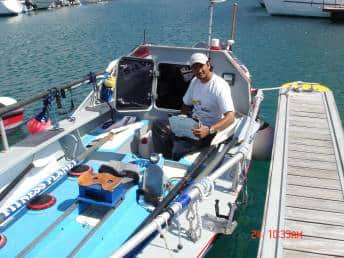
- They say there's no such thing as a perfect boat. It’s only when you are out in the ocean and start living inside it that you realise that maybe things could have been done differently or can be improved. It’s the same thing with companies or products, too. You have to go through some really bad spots to figure out if things really work and what can be done to make them better, so that when this crisis passes, you and your company will emerge stronger. Most importantly, though, the coronavirus crises also reinforces what every entrepreneur already knows, and it is that entrepreneurship is essentially a lonely journey. If you can’t be alone with yourself or with your thoughts, you are in the wrong company.
Murali K Menon works on content strategy at HaymarketSAC.















No comments:
Post a Comment